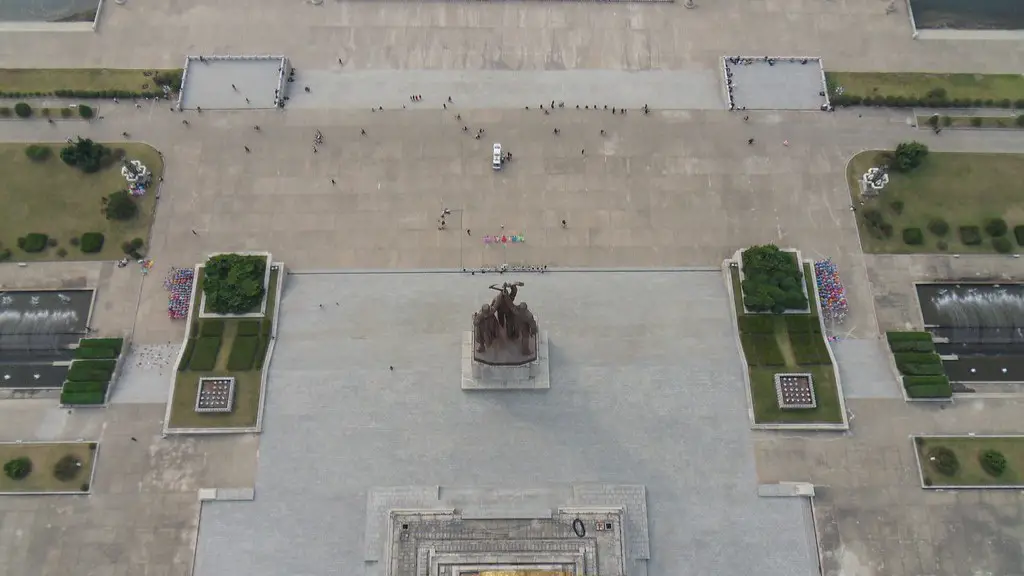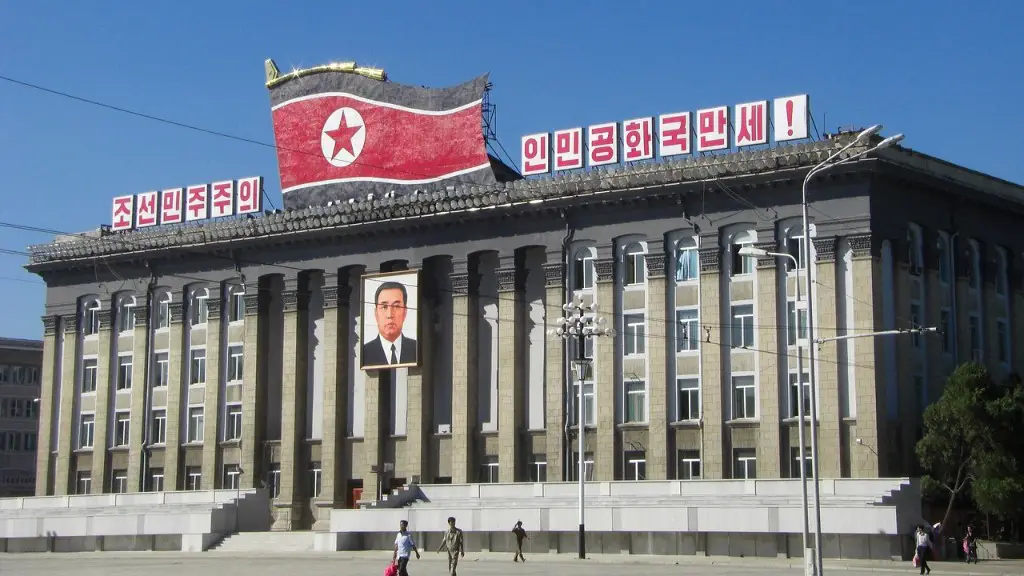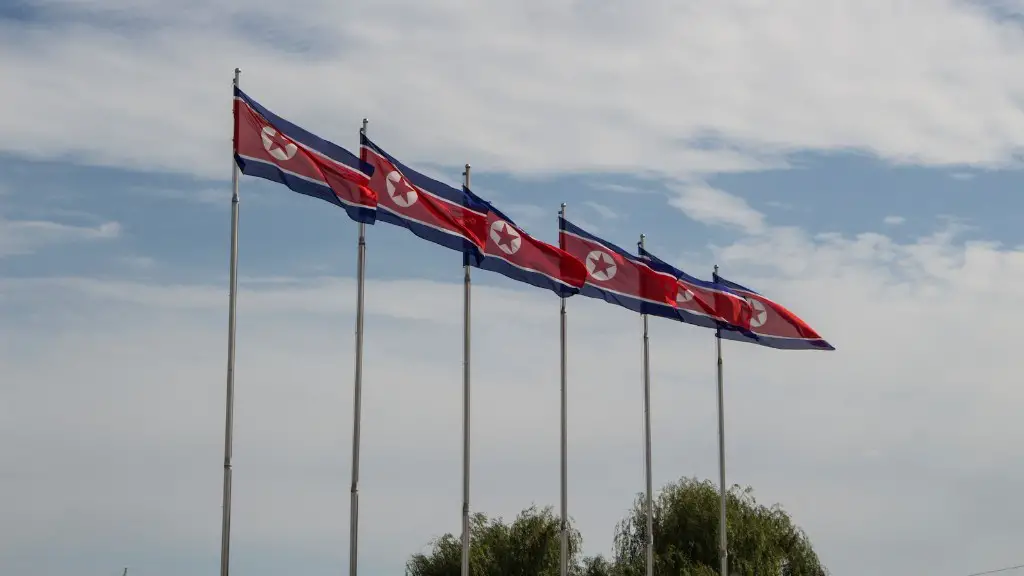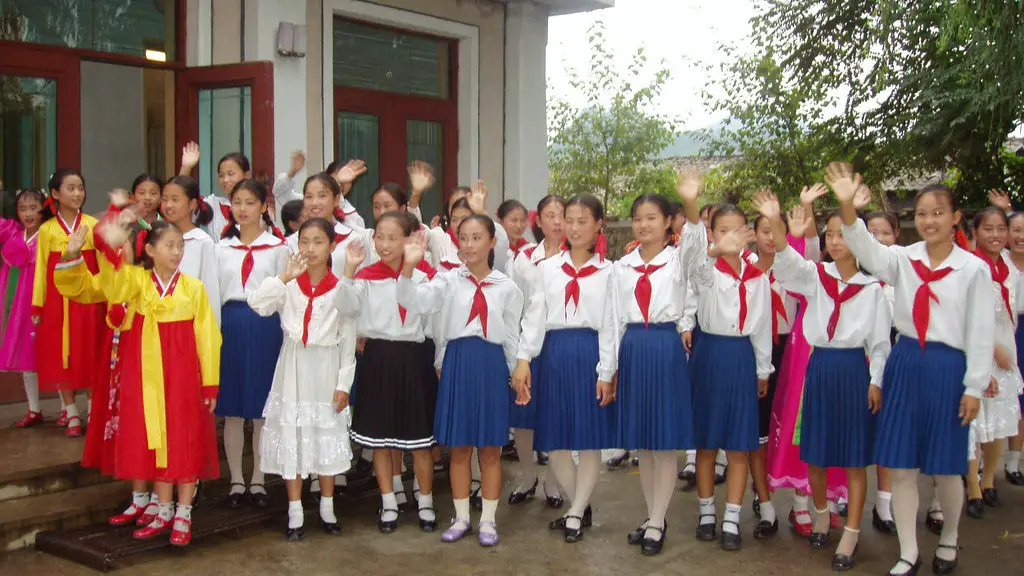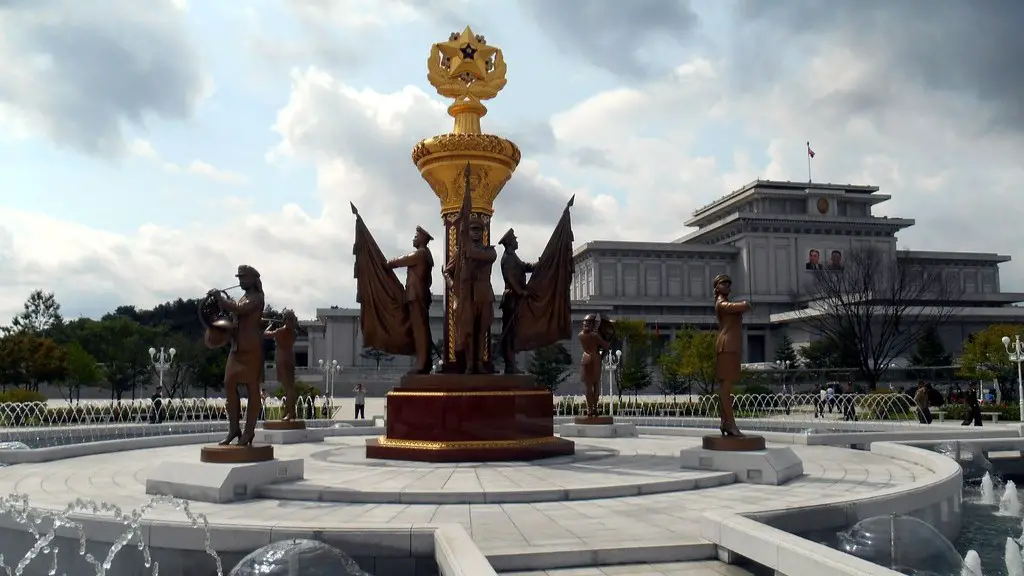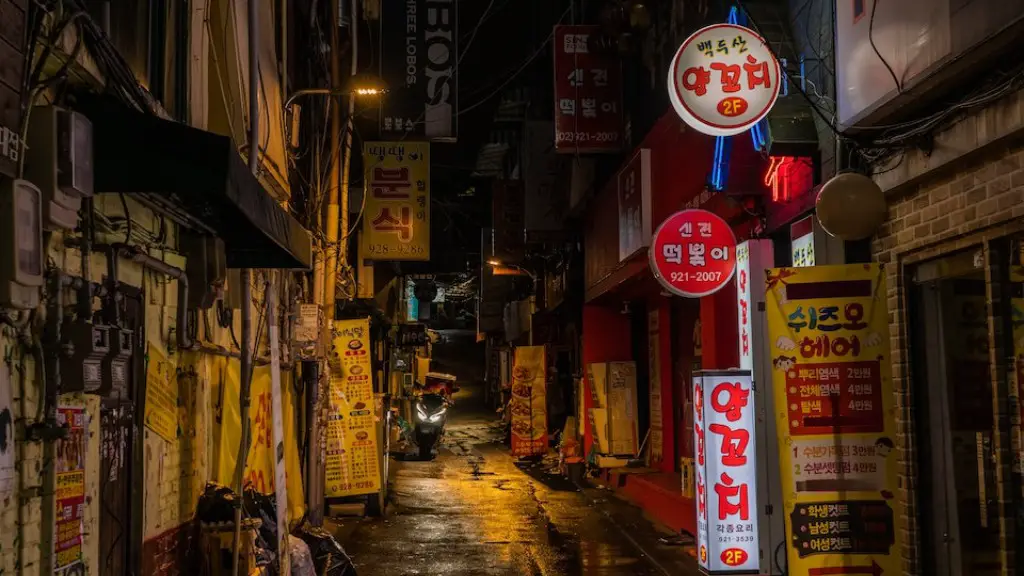North Korea is one of the most secretive and isolated countries in the world. Despite its Communist identity, the country has a long and complex history of religion, albeit one that has been heavily restricted under the rule of the Kim dynasty. Religions in North Korea are diverse and include Buddhism, Confucianism, Chondogyo, and shamanism.
Originally, Buddhism was the dominant faith in the region and its teachings were accepted by many rulers. Choson, which is the Korean name for the Joseon dynasty from 1392 to 1910, was heavily influenced by Confucianism. In the late 19th century, new religious movements appeared in the region, such as the Chondogyo Religion, which served as a major influence on North Korean politics and religion. This religion was based on traditional Korean beliefs and focused on living a moral and harmonious life.
The modern North Korean state has a mainly atheist policy and has declared itself free of religion since its inception in 1948. Kim Il-sung and his successor Kim Jong-il, have held an official stance of opposition to religion, seeking to suppress all religious activities. The government has also sought to erase the influence of Buddhist and Confucian beliefs. In some cases, temples, where Buddhist and Shaman rituals were once practiced, were destroyed and replaced with grandiose monuments to the Kim Dynasty.
In terms of religious freedoms, the North Korean government allows religious activity only in a limited manner. The only officially approved religion in North Korea is a state-controlled version of Chondogyo, which is supervised and regulated by the state. Despite this, there are still small pockets of religious activity among the population and reports of underground Christian communities in the country, although it is difficult to verify these claims due to the government’s tight control over information.
This lack of freedom of religion has been widely condemned by the international community, and the North Korean government’s actions have been deemed a violation of human rights by the United Nations and other human rights organizations. Any perceived religious activities seen as “anti-state” are harshly dealt with, including punishments such as execution, imprisonment in labor camps and torture.
Still, the country’s religious beliefs live on in some way. Shamanism, for instance, which is a traditional form of animism, is still practiced in some parts of the country, and many North Koreans still keep images and artifacts of their ancestral gods as a sign of reverence and respect.
Despite North Korea’s oppressive religious policies, there is a hidden side to religion in the country. Many North Koreans have managed to keep their faith alive in secret, while others have adapted to the religious restrictions imposed by the state and have found more subtle ways to express their religious beliefs.
Importance of Religion in North Korea
Despite the fact that North Korea is an officially atheist state, the importance of religion in the lives of North Koreans cannot be denied. Religion has served as a source of spiritual solace for many North Koreans, providing hope and comfort in difficult times. Religion has also helped to bring people together, providing a shared sense of identity and community among believers, regardless of differences in class or geography.
Religion has also been an important political tool for the North Korean government. By promoting a set of exclusive beliefs, the government is able to shape the minds of the populace and ensure that certain ideas and behaviors are instilled in the minds of the people. For example, an official version of the Chondogyo religion has been promulgated by the state to give the people a sense of morality that coincides with the government’s own agenda.
Religion has also been used as a form of propaganda. The North Korean government has often portrayed enemies of the state as “Satanic” or “evil”, while demonizing its own rulers and symbols of the state as “divine” or “holy”. By doing so, the government is able to strengthen the population’s faith in their leaders and instill a sense of loyalty.
In addition, religion has been used to instill a sense of nationalism and patriotism among the people. Through enforced rituals and festivals, the government is able to promote loyalty to the nation and reinforce national pride among the population.
How Do North Koreans React to Religion?
In general, North Koreans’ reaction to religion depends on their individual views and experiences. For many, religion serves as a source of comfort and peace in times of hardship. It also helps to create a sense of unity and community, even in the midst of a repressive society. Some North Koreans may even find solace in the rituals of state-controlled religions, as they offer structure and order to their lives.
On the other hand, there are many North Koreans who are highly skeptical of religion and religious practices. Many view religion as an outdated and oppressive institution, and as something that has only been used to maintain power and control the population. Other North Koreans may be more open to the idea of religion, but may have been discouraged from practicing it due to the threat of punishment.
In any case, it is clear that religion plays an important role in North Korea, and has been used as a tool by the government to shape public opinion and control the population. Despite the government’s efforts, however, it is clear that religion still plays a significant part in the lives of many North Koreans.
How Has Religion Influenced North Korean Society?
Religion has had a profound influence on North Korean society, both positively and negatively. The nation’s religious beliefs have shaped its culture and shaped the way it relates to the outside world. On a positive note, religion has played a role in providing spiritual comfort, building a sense of community, and promoting traditional values and morals.
On the negative side, religion has also been used by the North Korean government as a means of control and manipulation. The government has sought to suppress religious dissent, and has punished those who practice their faith in any way deemed “anti-state”. This has led to a situation in which North Koreans are often reluctant to practice their faith openly, which in turn has led to a lack of religious freedom in the country.
Despite this, it is clear that religion is still an important part of many North Koreans’ lives and continues to shape the culture and society of the nation in many ways.
International Efforts to Promote Freedom of Religion in North Korea
International organizations and human rights groups have campaigned for decades for an end to religious repression in North Korea. These groups have sought to put pressure on the North Korean government to allow greater freedom of religion in the country and to end the arbitrary punishment of religious practitioners.
The United Nations has also taken a leading role in pushing for reform. The UN has called on North Korea to abide by international human rights standards, and has urged the nation to respect the rights of individuals to practice and manifest their religion. The UN has also urged the North Korean government to allow greater access to foreign aid and religious materials.
Moreover, there have been increasing calls for economic sanctions against the North Korean government in order to bring about a change in the government’s policies on freedom of religion. These calls have been met with some resistance from the North Korean government, but there is still hope that the international community can help to bring about meaningful reform.
Role of Religion in North Korea’s Future
Despite the challenges posed by the North Korean government’s religious policies, many North Koreans remain hopeful that one day there will be greater religious freedom in the country. For now, however, the government’s policies remain in place, allowing only state-sanctioned religion, while attempting to suppress any religious activity seen as “anti-state”.
The future of North Korea will largely depend on its relationship with the outside world, and whether the nation’s leaders are willing to open up and allow greater freedom of religion. Only time will tell whether the government will loosen its grip on the country’s religious beliefs, or whether it will remain steadfast in its efforts to maintain control.
Conclusion
Religions in North Korea are diverse, but severely restricted by the Red Government. Buddhism, Confucianism, Chondogyo, and shamanism are all present to some extent, but their practice is highly restricted. This lack of freedom of religion has been widely condemned by the international community and labeled a violation of human rights. Despite this, many North Koreans still hold on to their religious beliefs, albeit discreetly. Religion has played an important role in the lives of North Koreans, providing both spiritual comfort and a sense of community while also being used as a tool of control by the government. International efforts have sought to put pressure on the North Korean government to allow greater freedom of religion in the country, but it remains to be seen whether real reform can take place.
